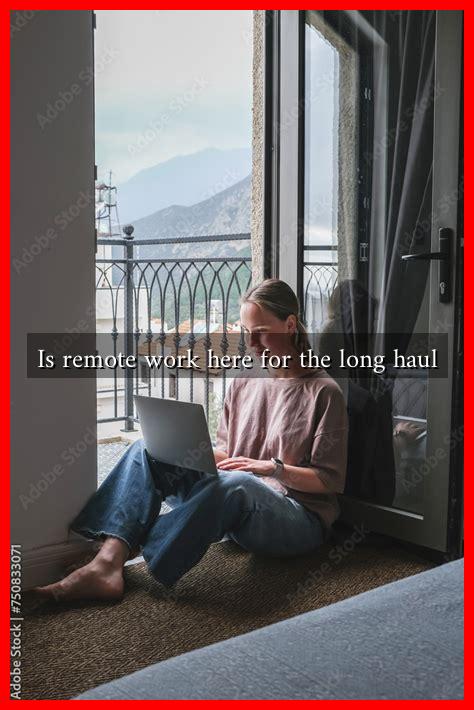-
Table of Contents
Is Remote Work Here for the Long Haul?
The COVID-19 pandemic has dramatically reshaped the workplace landscape, pushing remote work from a niche option to a mainstream necessity. As we move into a post-pandemic world, the question arises: Is remote work here to stay? This article explores the sustainability of remote work, its benefits and challenges, and what the future may hold for this evolving work model.
The Rise of Remote Work
Before the pandemic, remote work was already gaining traction, with about 24% of U.S. employees working remotely at least part-time in 2019, according to a report by the U.S. Bureau of Labor Statistics. However, the onset of COVID-19 accelerated this trend exponentially. By May 2020, that number surged to 42% of the workforce working from home full-time.
As companies adapted to this new reality, many discovered that remote work could be both productive and cost-effective. A study by Stanford University found that remote workers were 13% more productive than their in-office counterparts, leading to a significant shift in how businesses view remote work.
Benefits of Remote Work
Remote work offers numerous advantages for both employees and employers:
- Increased Flexibility: Employees can create a work schedule that suits their personal lives, leading to improved work-life balance.
- Cost Savings: Companies can save on overhead costs such as office space, utilities, and supplies.
- Access to a Global Talent Pool: Employers can hire talent from anywhere in the world, increasing diversity and expertise within teams.
- Reduced Commute Stress: Employees save time and money by eliminating daily commutes, which can lead to higher job satisfaction.
Challenges of Remote Work
Despite its benefits, remote work is not without challenges:
- Communication Barriers: Remote teams may struggle with effective communication, leading to misunderstandings and decreased collaboration.
- Isolation: Employees may feel disconnected from their colleagues, which can impact morale and team cohesion.
- Work-Life Boundaries: The blurring of lines between work and personal life can lead to burnout if not managed properly.
- Technology Dependence: Remote work relies heavily on technology, which can be a barrier for some employees and may lead to technical issues.
Case Studies: Companies Embracing Remote Work
Several companies have embraced remote work as a long-term strategy:
- Twitter: The social media giant announced that employees could work from home indefinitely if they choose to do so.
- Shopify: The e-commerce platform declared itself a “digital by default” company, allowing employees to work remotely permanently.
- Microsoft: The tech giant has introduced a hybrid work model, allowing employees to choose how often they come into the office.
These examples illustrate a growing trend among companies to adopt flexible work arrangements, signaling that remote work may indeed be here for the long haul.
The Future of Remote Work
As we look ahead, several trends suggest that remote work will continue to be a significant part of the employment landscape:
- Hybrid Models: Many companies are adopting hybrid models that combine remote and in-office work, offering flexibility while maintaining some level of in-person collaboration.
- Investment in Technology: Businesses are increasingly investing in tools and platforms that facilitate remote work, enhancing communication and productivity.
- Focus on Employee Well-being: Companies are prioritizing mental health and well-being initiatives to combat the isolation that can come with remote work.
Conclusion
In conclusion, remote work is not just a temporary response to a global crisis; it represents a fundamental shift in how we approach work. While challenges remain, the benefits of remote work are compelling enough that many companies are likely to continue embracing this model. As organizations adapt to new technologies and prioritize employee well-being, remote work is poised to remain a significant part of the employment landscape for years to come. For more insights on remote work trends, you can visit Forbes.


